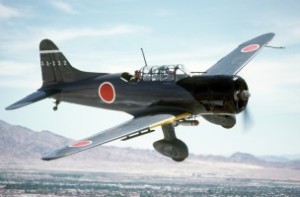
World War II
I am one of them. “My war” ended for my town on April 10, 1945, though the country officially surrendered on May 9, 1945. I was approaching my 7th birthday that August.
What does it mean, the war ended?
No more enemy attacks, no more bombs raining out of the sky and trying to make it to a bomb shelter. Not much else changed. The economy was in shambles, buildings were in ruins, displaced persons were everywhere competing for much reduced housing. Food was scarce and few goods were available. The “black market” boomed with cigarettes as prized currency.
It took many years to recover. Actually, it was the American Marshall plan of 1948 that greatly aided in that process, bringing a new currency that enabled at first a slow recovery soon moving into the German Wirtschaftswunder, the “rapid” development of the economic miracle.
By that time I was already a teenage; by age 21 I left Germany for better opportunities abroad, especially housing and mobility. In the 1970’s the housing situation in Germany only began to ease up, at least in the large industrial cities.
The “war” never left my sense of being. Though we were never able to work it out. No big deal. Everybody had gone through it, so why should anyone feel a special loss of childhood or youth? Every once in a while a historical detail would bring reminders.
During the recent Passover/Easter celebrations I could not help thinking of all the children who, during this session of Liberation and Joy, are suffering in any of the many war zones around the world.
Children have no real concept of who is a friend and who is a foe, or who may be responsible for having started the fray. They judge events as they present themselves when they do.
Recently a picture of a five-year-old Syrian girl circulated on the Internet. Her pudgy face would have looked adorable, had not her lips been pressed tightly together and her eyes stared at the camera in fear. It took the photographer a moment to realize why: she had mistaken the camera for a gun and threw her arms over her head in surrender.
“Don’t shoot me!”
For me a moment of surrender came during the first Gulf War. Just a year before it started, a young family from Rochester had moved to Israel and now was reporting daily in interviews via the Democrat & Chronicle. This was the war when missiles from Iraq reached Tel Aviv and Jerusalem and Israelis were creating sealed rooms to escape these attacks. One morning the family’s very young daughter was asked in an interview what she thought about the events. Her spontaneous reply was: “When you have to wear a gas mask, you can’t suck you thumb.”
At first it brought subtle tears to my eyes. They soon turned to floods and finally into uncontrollable sobbing. When I was able to regain control, I realized I had not just cried in empathy with the little girt in Israel but had also wept for my own unexpressed grief, a first flood now as an adult nearing retirement.
When I was about six years old, I had a moment of mixing up “foe” and “friend.” It was one of those rare brilliant sunny summer days when my aunt and I were outside the rear entrance of our house watching a plane trailing a dark plume of smoke approaching our house. Where would it come down? Would it hit our house? Which way would we need to evacuate? Would it be to the backyard or to the street in front?
Soon the plane cleared the roofline and disappeared from our view with just a trail of smoke visible. My mother at the front door now followed as the plane kept moving slightly to the left and made a U-turn back toward our hose. It didn’t seem to lose altitude as it headed back and my aunt and I saw it reappear. It kept moving until all of a sudden it just fell out of the sky. Clearly, one “foe” down. We were safe once again and so were other villagers. It was clear that the plane had fallen in the middle of farm fields.
The second part of this memory is not nearly as clear as the earlier part. Some people in my family decided to follow the crowd to the actual crash site. Was it my uncle, who held my hand tightly in his as we made our way there? All I remember is that we reached the pond and along its shore the tiny plane had found its end. It was a toy really, and the three or four flight suits strewn about could not have held anyone older than fifteen, little boys. These were not “foes.” I thought of their families who would never see their kids again. Were they “friends”? I don’t know. But at that moment my empathy was with them, and our morning’s fear seemed to have vanished, at least from my memory. I don’t remember ever talking to anyone about my feelings.